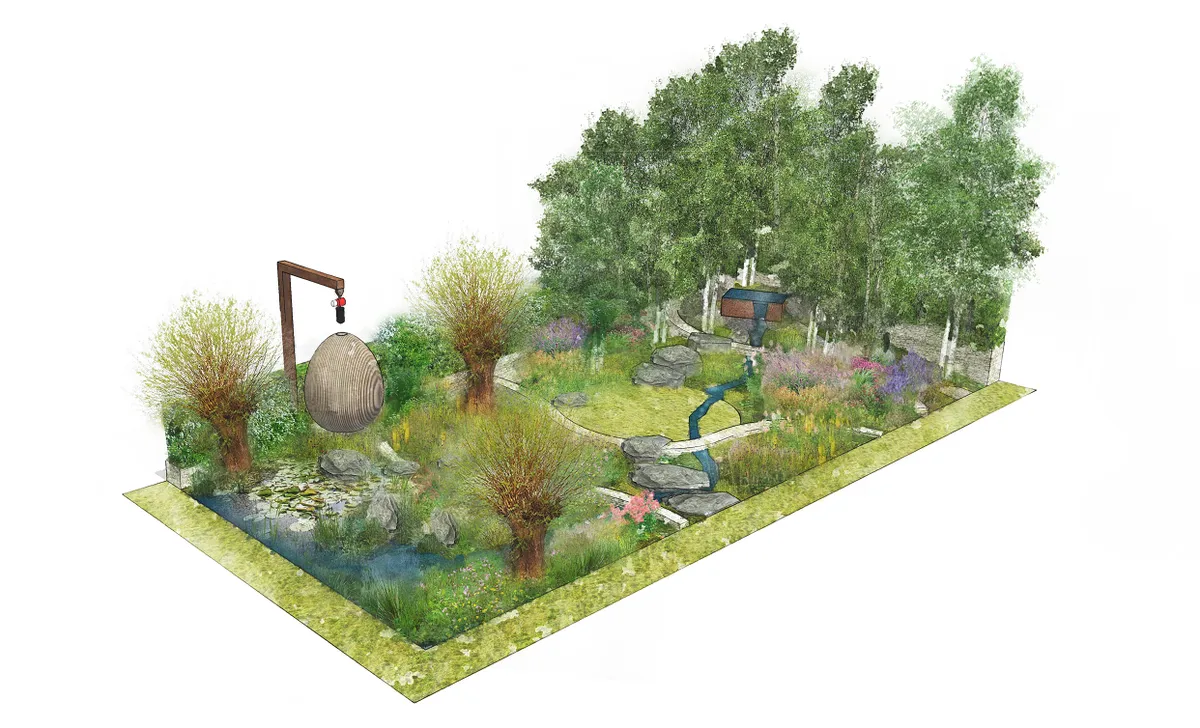We were actually thinking of having a break from RHS Chelsea Flower Show this year. The Chelsea Flower Show is a hideous addiction but we have supplied plants to five or six gardens at Chelsea every year for the past 20 years. And May is always our busiest month quite apart from Chelsea, so you have to work very carefully to make sure that all the other elements of your business don't suffer because of it. Our plants have also won gold many times over the years and we have very little left to prove.
And then we heard from designer Tom Massey and Yeo Valley Organic. No one has ever grown an entire garden that's organic or with organic principles at Chelsea and it was this challenge that drew us back in.
With organic, you have to get the wording right. For a garden to be called organic, it needs to be grown using organic methods for two years previously, so when you only get five or six month's notice, this makes it very tricky.
This is the highest risk garden I've ever grown for
But the Soil Association was there at our initial meeting and Yeo Valley made it clear it wanted the whole garden to be grown organically or on organic principles. The Soil Association confirmed it would allow this to be done. So everything, where possible, will be organic. But this also meant that this garden is by far and away the highest risk garden that I've ever worked on worked on.
Issues we faced
We spent a lot of time researching what we would need to do and the main worrying thing was we hadn't had the chance to trial it before. But Hortus Loci is renowned for pushing boundaries, we don't play safe with gardens at Chelsea, otherwise it gets boring.
We needed to find an organic compost mix (we're also using peat-free compost), biochar, and a feed that's organic. We needed to put everything in a different part of the nursery where there's no weed killer. Seeds and bulbs are being sourced organically, they will be potted in organic compost and grown in rice pots. But the trees, which are 30 to 40 years old, and hedges, which are 8 to 10 years old, have been grown already. So we will be looking after these using organic principles.

The weather is always one of the terrifying uncertainties. And this year we have had so many weather extremes. October was one of the wettest on record, and we only have one shot at this organic garden. If something goes wrong with growing a plant, you can't say 'Oh we'll have to buy another organic plant', it's exceptionally difficult to start that process from scratch.
There's also difficulties with financial uncertainty and Brexit too. The end payers for Chelsea often end up being financial houses of some sort and when you have financial uncertainty, no one wants to spend any money. Banks aren't lending, which means everyone is paid very late.
One thing I've learnt
I hadn't realised how far behind the UK is with organic produce compared with the rest of Europe. So anything that's high profile around organic growing offers a great opportunity to let people know about organic. In France they sell around three times more organic food than in the UK, in Denmark it's even higher.
In effect, it's second nature for us. If you have worked outside since you were 16 as I have, you see the changes - in temperature and weather - firsthand because you are living it everyday. Ultimately we are farmers of plants and for that very reason we have to be responsible.